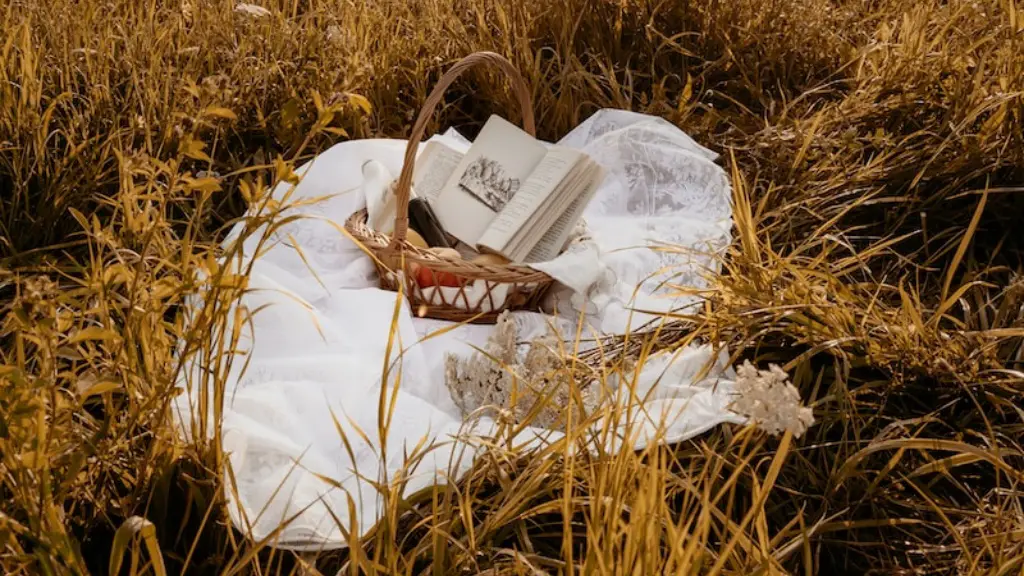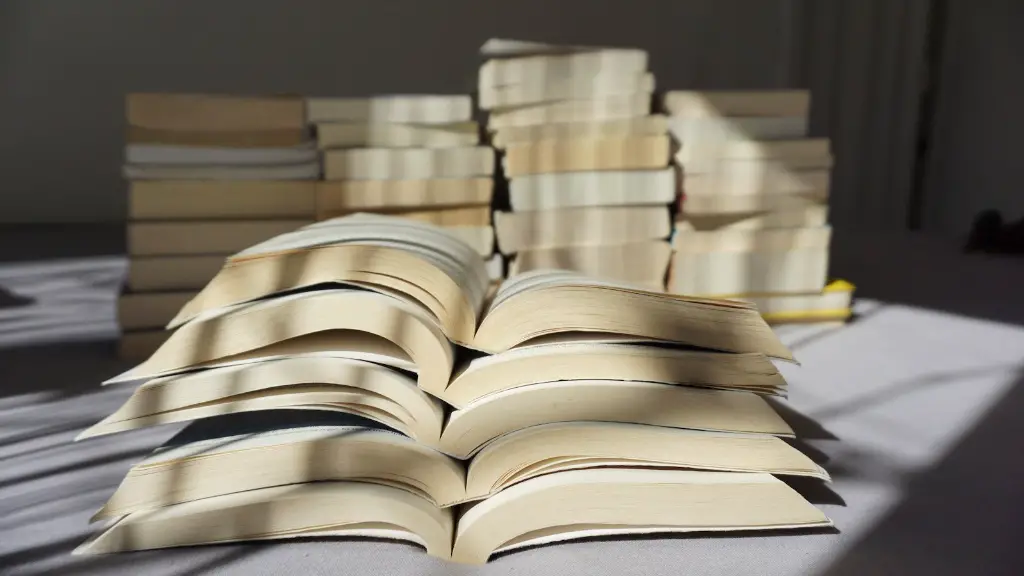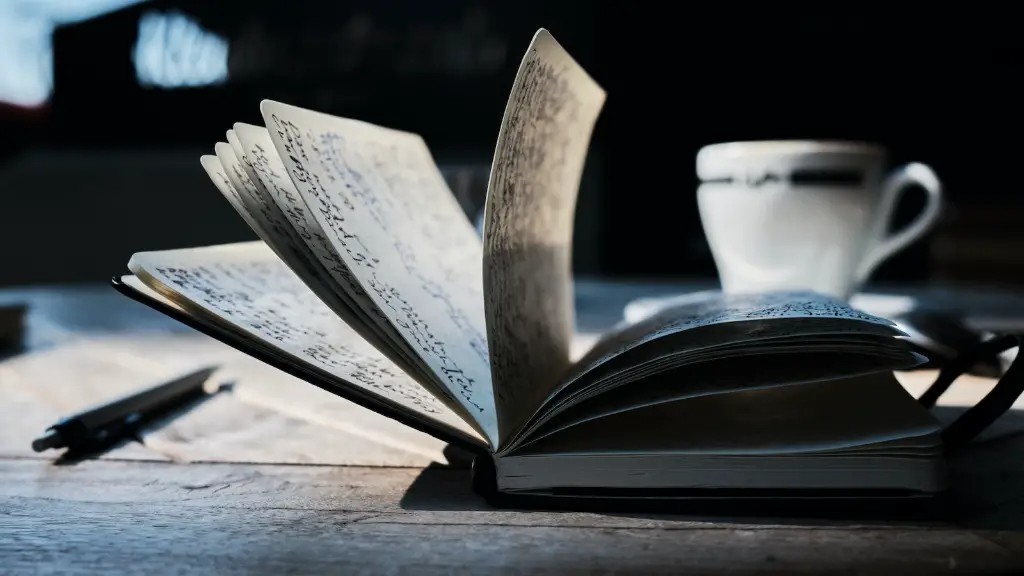Creativity
The starting point of creating great poetry begins with enhancing creativity. It is important to brainstorm ideas, seek inspiration, look for alternative sources of information, come up with new approaches and ways of thinking about a particular topic or idea. It is also important to try different forms of expression such as writing, sketching, painting and expressing through music. Other methods to enhance creativity are reading inspiring works, engaging in conversations with peers and exploring diverse thoughts and ideas.
Brainstorming
This creative process involves listing the thoughts that are present in one’s mind during the process of writing poetry. Brainstorming is an important tool to gain insight and enhance creativity. The key is to come up with as many ideas as possible, as one never knows when an idea will spark further inspiration. Writing down each thought and idea can help keep track of the creative process. This allows writers to review their ideas, and to identify the most relevant ones to the poem.
Choosing a theme
The next step in the process of writing poetry is selecting a theme. It is important to take time to consider a variety of potential related ideas and themes. This helps focus on a strong concept for the poem. Selecting patterns and details for the poem is key to engaging and inspiring readers. Remember to center the poem around a single idea. It is also beneficial to read poetry commonly associated with the chosen theme in order to attain further inspiration and ideas.
Poetic Form
Choosing the form of a poem is an essential element of writing poetry. It can be a formal structure such as the sonnet, or a more free-form shape such as the prose poem, free verse poem or haiku. Picking the right form and rhythm for the poem can help solidify the poem’s concept. For example, the free verse poem gives writers the freedom and flexibility to explore ideas and elements that formal poetic patterns might not allow in able to write a successful poem.
Poetic Devices
Using poetic devices such as alliteration, similes, metaphors, personification and onomatopoeia can enhance a poem’s aesthetic impact. Using specific and vivid language and imagery is important for engaging the reader and communicating an idea or emotion. By using semantic and rhetorical tools like synecdoche, paradox, meter and rhyme, the writer can achieve a higher level of impact in their poem.
Word Choice
The final step in creating a poem is choosing the words carefully to reflect the intended meaning. The language and diction in the poem should be precise, authentic, and meaningful. Every word should have deliberate purpose in the poem, serving to contribute to the overall message. Researching the meaning of words and the connotations they possess is key to selecting the appropriate ones.
Using Your Own Ideas
Allowing themes and concepts to flow naturally, and having trust in the creative process of writing is essential in the development of great poems. The process of writing poetry should begin with an ideal, and while the poem should draw inspiration from different sources, the writer’s individual ideas and sentiments should be primary in the creation of the poem. Ideology is unique and personal to the author, and for a poem to be truly meaningful it should capture their worldview.
Tips and Tricks
In the journey of creating poems, it is important to remember to have a positive attitude, writing without judgement and allowing the creative process to follow its own path. Taking regular breaks to rest one’s mind and recharge creativity is integral to producing quality output. Using different tools can also help manage ideas, such as brainstorming or using word association games. Seeking feedback and constructive criticism is also beneficial in improving the poem.
Finding Your Voice
Writing poetry allows writers to express their authentic thoughts and feelings. By writing freely and transparently, one can connect their internal emotions and generate pieces that are meaningful to them. It is important to focus on uncovering the voice of the poet, and to explore different forms of expression that align with their own personal style.
Exploring a Variety of Genres
Exploring different genres of poetry can help a writer to find their own specific writing style. Different genres evoke different emotions and moods that writers can explore. This makes it possible for the writer to try new approaches to writing and explore different sources of inspiration. Additionally, discovering the works of various authors can help to develop a unique style of writing, learning unique techniques and literary elements.
Setting an Intention
Knowing the purpose and intent of the poem prior to its creation is essential to effectively crafting a quality poem. Setting an intention can provide the structure and direction needed to develop the poem and can create focus while engaging in the creative process. Having an idea of the poem’s theme and message provides an anchor to ensure that the poetry stays on the right path.
Understanding Grammar and Syntax
Assembling a poem in a grammatically correct manner is essential for a poem to have its intended meaning and aesthetic impact. It is beneficial to understand the different forms of grammar and syntax that exist, allowing the writer to make meaningful and thoughtful word decisions. Additionally, having an understanding of poetic terms and elements such as meter, alliteration, metaphors, and etcetera helps to create an accurate and useful reference for writing poetry.
Enjoy The Process
The art of writing poetry is a highly personal and creative experience. Taking the time to enjoy and appreciate the creative process, and feeling comfortable in exploring poetic ideas and techniques, is essential to creating powerful and meaningful poems. A poem that comes from the heart and captures the emotion behind it will resonate with readers in a much more impactful way than a poem that was written hastily or mechanically. Relaxing and appreciating the uniqueness of one’s individual experiences will help to create memorable and evocative poems.



